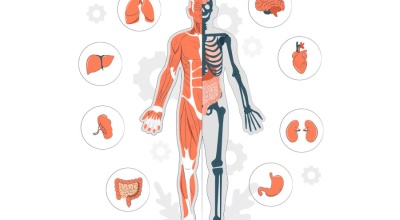President Obama is the First Sitting U.S. President to Visit a Federal Prison, has commuted more sentences than any president since Lyndon B. Johnson, and more than the last four presidents combined
"We want to be in a position in which if somebody in the midst of imprisonment recognizes the error of their ways, is in the process of reflecting about where they’ve been and where they should be going, we’ve got to make sure that they’re in a position to make the turn." President Barack Obama "Our Criminal Justice System Isn't as Smart as It Should Be"
The unfairness in much of our criminal justice system, and highlighting ideas of reform while keeping Americans safe and secure.
Justice is not only the absence of oppression, it is the presence of opportunity. Justice is giving every child a shot at a great education no matter what zip code they’re born into. Justice is giving everyone willing to work hard the chance at a good job with good wages, no matter what their name is, what their skin color is, where they live.
A quick look at the numbers:
- 2.2 million: The number of prisoners in the U.S. -- which has quadrupled from only 500,000 in 1980.
- 25 percent: The share of the world's prisoners that are in the U.S., even though we're only home to 5 percent of the world's population.
- 60 percent: The share of U.S. prisoners that are either African American or Latino. "About one in every 35 African American men, one in every 88 Latino men is serving time right now," the President said. "Among white men, that number is one in 214."
- $80 billion: The amount we spend each year to keep people incarcerated in America. For $80 billion, we could:
Provide universal preschool for every 3-year-old and 4-year-old in America
Double the salary of every high school teacher in America
Finance new roads, bridges, and airports; job training programs; research and development
Eliminate tuition at every one of our public colleges and universities
Prison–industrial complex
"Mass incarceration makes our entire country worse off, and we need to do something about it." —@POTUShttp://t.co/02KRTen3uf
— The White House (@WhiteHouse) July 15, 2015
Prison–industrial complex
The term "prison–industrial complex" (PIC) is used to attribute the rapid expansion of the US inmate population to the political influence of private prison companies and businesses that supply goods and services to government prison agencies. The term is derived from the "military–industrial complex" of the 1950s. Such groups include corporations that contract prison labor, construction companies, surveillance technology vendors, companies that operate prison food services and medical facilities, private probation companies, lawyers, and lobby groups that represent them. Activist groups such as the National Organization for the Reform of Marijuana Laws (NORML) have argued that the prison-industrial complex is perpetuating a flawed belief that imprisonment is an effective solution to social problems such as homelessness, unemployment, drug addiction, mental illness, and illiteracy.
President Obama Delivers Remarks At The Naacp's 106th National Convention
President Obama Wants to End Mass Incarceration, But Will the Momentum Continue After He Leaves the White House?
“We should not tolerate conditions in prison that have no place in any civilized country,” President Obama said. “We should not be tolerating overcrowding in prison. We should not be tolerating gang activity in prison. We should not be tolerating rape in prison—and we shouldn’t be making jokes about it in our popular culture. That’s no joke. These things are unacceptable.”
What Happens When You Build a Town Around a Prison?
How a Group of Female Inmates Won the Right to Live with Their Children

What Federal Inmates Think of President Obama's Plan to Visit a Prison Today
When it was announced on Friday that President Obama will be visiting the El Reno federal prison in Oklahoma this week—an occasion that will be filmed for a VICE HBO special on criminal justice—I couldn't help thinking of the time I spent in that very same facility more than 20 years ago.
It was 1993, and El Reno—a medium-security prison—was being used as a transit hub for inmates being shipped around the country. I can't even fathom how a presidential visit might have been received back then, when the war on drugs was in full swing and no one with any power seemed to care all that much about people behind bars. But interviews with inmates at the Federal Correctional Institution (FCI) in Terre Haute, Indiana—another medium-security prison—suggest the planned visit is already making waves.
"I am not gonna lie; I went up to my room and cried," Steven Tyrone Johnson, a nonviolent crack cocaine offender serving life without parole, said about hearing the news. "I feel that after twenty years in these prisons, the good Lord brought us Barack Obama to set things right."
The mandatory-minimum sentencing scheme is what put Johnson in this lifelong fix, and he believes once US Pardon Attorney Deborah Leff receives his clemency petition, it's only be a matter of time before he gets out.
"I've done everything right: worked in the prison factory, remained clear conduct, stayed close to my lord and savior, Jesus Christ," Johnson says. "I believe this is almost over." President Obama having already announced 46 commutations on Monday, and with rumors of more to come, Johnson isn't exactly delusional.
Sticker Shock: Calculating Youth Incarceration What are the long-term costs incarceration can have on young people?
With 1 in Every 10 Black Males Under 30 in Prison, We Need More Than Apologies from Bill Clinton
Speaking at the NAACP National Convention in Philadelphia on July 15, former President Bill Clinton apologized to Black America for signing the 1994 Omnibus Crime Bill, a tough on crime measure which boosted prison sentences, especially for people of color, and helped create the problem of mass incarceration in America.
- Listen to a conversation on ways we can improve community policing
- See why the President is taking steps to demilitarize local police forces
- Fact sheet: "Creating Opportunity for All Through Stronger, Safer Communities"
- Launch of the Police Data Initiative
- The Department of Justice's national body-worn camera toolkit
- President Obama's remarks to youth and law enforcement in Camden, NJ
Public Downloads
All items are free to view, share, and download.
Public Downloads - Español (Spanish)
When available, we provide all our content with a Spanish version in our public download section. You can find additional material from sources listed in all our articles.
Download Prosecutor Accountability Movement Information, and Resources
Download Information and Resources About Organizations
Download Civil Rights, Activities, Information, and Resources















